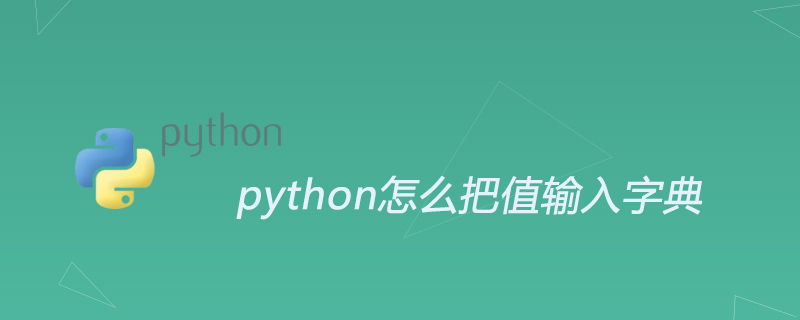

Python dictionary is another mutable container model and can store any type of object, such as strings, numbers, tuples and other container models.
1. Create a dictionary
A dictionary consists of pairs of keys and corresponding values. Dictionaries are also called associative arrays or hash tables. The basic syntax is as follows:
dict = {'Alice': '2341', 'Beth': '9102', 'Cecil': '3258'}You can also create a dictionary like this
dict1 = { 'abc': 456 }
dict2 = { 'abc': 123, 98.6: 37 }Note:
Each key and value are separated by a colon (:), each pair is separated by a comma, and each pair is separated by a comma. Split and place the whole in curly braces ({}).
Keys must be unique, but values do not.
The value can be of any data type, but it must be immutable, such as string, number or tuple.
Modify the dictionary:
The way to add new content to the dictionary is to add new key/value pairs, modify or delete existing key/value pairs as follows:
dict = {'Name': 'Zara', 'Age': 7, 'Class': 'First'};
dict['Age'] = 8; # update existing entry
dict['School'] = "DPS School"; # Add new entry
print "dict['Age']: ", dict['Age'];
print "dict['School']: ", dict['School'];
#以上实例输出结果:
#dict['Age']: 8
#dict['School']: DPS SchoolMore Python For related technical articles, please visit the Python Tutorial column to learn!
The above is the detailed content of How to enter values into dictionary in python. For more information, please follow other related articles on the PHP Chinese website!
 c array initialization method
c array initialization method
 Can Douyin sparks be lit again if they have been off for more than three days?
Can Douyin sparks be lit again if they have been off for more than three days?
 How to use the datediff function
How to use the datediff function
 How to configure jdk environment variables
How to configure jdk environment variables
 Words disappear after typing
Words disappear after typing
 What is Bitcoin? Is it legal? Is it a scam?
What is Bitcoin? Is it legal? Is it a scam?
 How to increase download speed
How to increase download speed
 How to connect vb to access database
How to connect vb to access database